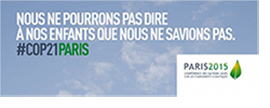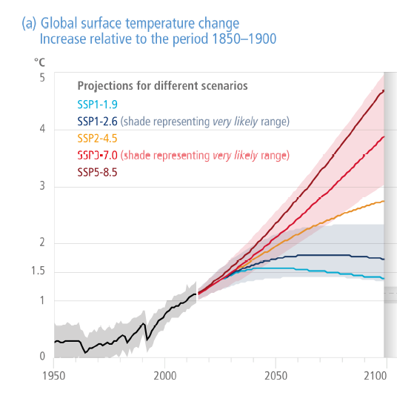Related subjects:
Our concrete actions to reduce our carbon footprint
Eco-design of our products: a benefit for our customers
Our environment is changing with climate change

In 2015, the COP21 was held in Paris. Human responsibility for global warming was finally recognized and the Paris agreements set a target for reducing greenhouse gas emissions to contain global warming at 2°C. At SLAT, we understood that the promises made by France and other industrialized countries could not be kept without a strong commitment from companies. This is how the NetZero working group was created, made up of volunteer employees responsible for guiding the company's concrete actions to reduce GHG emissions.
Recent communications and papers, such as the one of CNRS / MétéoFrance in 2019, or publications of the IPCC in 2020 and 2021, have shown us the urgency to act. Global warming is not waiting for countries to agree on their right to pollute, or to legislate for an environmental policy.
/ MétéoFrance in 2019, or publications of the IPCC in 2020 and 2021, have shown us the urgency to act. Global warming is not waiting for countries to agree on their right to pollute, or to legislate for an environmental policy.
Global emissions of carbon dioxide, methane and nitrous oxide are not holding at their 2015 levels, they are accelerating. The temperature of the planet is increasing at a rate never before seen in the history of the earth, at 4.5°C per century according to the IPCC, or even 7°C per century in the more pessimistic simulations of the CNRS.
https://www.noaa.gov/news-release/carbon-dioxide-now-more-than-50-higher-than-pre-industrial-levels
https://www.ipsl.fr/Actualites/Actualites-scientifiques/Les-simulations-climatiques-francaises
The consequences of this warming are difficult to predict. If we only look at the rise in temperature, we realize that large areas of the equatorial band will be unfit for human life within a few decades, due to the high temperatures coupled with the humidity, which makes transpiration that cools the body to 37°, impossible. A report published in the journal PNAS by the University of Hawaii simulates the unlivable zones. As early as 2050, in only 30 years, entire countries will see their population in danger (Indonesia, Brazil, Equatorial Africa).
https://geoxc-apps.bd.esri.com/MoraLabs/GlobalRiskOfDeadlyHeat/index.html#
In Europe, we will run out of water in the summer, when daytime temperatures are at their highest. A deficit of 2 billion m3 of water is anticipated in France by 2050. Added to the melting of glaciers, the flow of rivers will be strongly reduced in summer. The production of electricity by nuclear power plants, or manufacturing of aluminum, semiconductors, ... will be penalized by the lack of water for cooling or their process.
The summers known in 2003 and 2022 will then be the norm. The plants will be very strongly stressed. Agricultural yields will drop. Climatic phenomena, especially thunderstorms, will be exacerbated by the increase in daytime temperatures.
Why and how SLAT commits to the environment
If climate change is expressed on time scales that exceed one generation, we are today responsible for the climate of future generations. The living conditions of our children and grandchildren depend on our actions.
At SLAT, we believe that every action counts.
The Earth, our ship, is taking on water and we must bail out. It doesn't matter if our neighbor hasn't yet realized that we are sinking, we have to bail out, and fast.
From our experience with quality, we also know that it is a journey that is much more than a single objective. It is a process of continuous improvement. Once we have achieved our goals, we set new ones to make continuous progress towards carbon neutrality. This involves the commitment of management but also the participation of all employees.
This approach regularly leads to a choice between economic and ecological optimization. We understood that performance would be achieved by making our decisions based on the carbon emissions they generate and not only on the profits they bring.
How do we respond to the urgency? By starting right away, of course, but with an ambitious plan to reach a goal and a roadmap that gives milestones to be reached by a given deadline, ordered in time.
Related subjects:
Our concrete actions to reduce our carbon footprint
Eco-design of our products: a benefit for our customers
